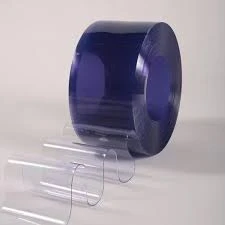- Afrikaans
- Albanian
- Amharic
- Arabic
- Armenian
- Azerbaijani
- Basque
- Belarusian
- Bengali
- Bosnian
- Bulgarian
- Catalan
- Cebuano
- Corsican
- Croatian
- Czech
- Danish
- Dutch
- English
- Esperanto
- Estonian
- Finnish
- French
- Frisian
- Galician
- Georgian
- German
- Greek
- Gujarati
- Haitian Creole
- hausa
- hawaiian
- Hebrew
- Hindi
- Miao
- Hungarian
- Icelandic
- igbo
- Indonesian
- irish
- Italian
- Japanese
- Javanese
- Kannada
- kazakh
- Khmer
- Rwandese
- Korean
- Kurdish
- Kyrgyz
- Lao
- Latin
- Latvian
- Lithuanian
- Luxembourgish
- Macedonian
- Malgashi
- Malay
- Malayalam
- Maltese
- Maori
- Marathi
- Mongolian
- Myanmar
- Nepali
- Norwegian
- Norwegian
- Occitan
- Pashto
- Persian
- Polish
- Portuguese
- Punjabi
- Romanian
- Russian
- Samoan
- Scottish Gaelic
- Serbian
- Sesotho
- Shona
- Sindhi
- Sinhala
- Slovak
- Slovenian
- Somali
- Spanish
- Sundanese
- Swahili
- Swedish
- Tagalog
- Tajik
- Tamil
- Tatar
- Telugu
- Thai
- Turkish
- Turkmen
- Ukrainian
- Urdu
- Uighur
- Uzbek
- Vietnamese
- Welsh
- Bantu
- Yiddish
- Yoruba
- Zulu
Exploring the Versatility and Applications of Plastic Sheets in Various Industries
The Versatility and Applications of Plastic Sheets
Plastic sheets are ubiquitous materials used in a variety of applications across industries. From packaging to construction, the versatility of plastic sheets has made them invaluable in modern manufacturing and everyday life. This article explores the different types of plastic sheets, their applications, and the benefits they offer.
Types of Plastic Sheets
Plastic sheets come in a range of materials, each with unique properties suited for specific applications. The most common types include
1. Acrylic Sheets Also known as PMMA (Polymethyl Methacrylate), acrylic sheets are clear, lightweight, and have excellent optical clarity. They are often used as an alternative to glass due to their shatter resistance and UV stability. Acrylic is widely used in signage, displays, and protective barriers.
2. Polycarbonate Sheets Known for their incredible strength and impact resistance, polycarbonate sheets are often used in environments where durability is crucial. They are often utilized in safety equipment, automotive components, and even in the construction of greenhouses due to their insulating properties.
3. Vinyl Sheets Flexible and easy to work with, vinyl sheets are used for a range of applications including flooring, wall coverings, and packaging. Their resistance to moisture makes them ideal for use in bathrooms and kitchens.
4. Polyethylene Sheets This type of plastic sheet is widely used for its moisture resistance and durability. Polyethylene sheets are commonly employed in agriculture, construction, and as protective barriers in various industries.
5. Polystyrene Sheets Often used for insulation and packaging, polystyrene sheets are lightweight and available in both rigid and foam forms. They are frequently used in the food industry for disposable containers and packaging materials.
Applications of Plastic Sheets
plastic sheets

The applications of plastic sheets are extensive and varied. In the construction industry, they are used as vapor barriers, insulation, and protective sheeting during building projects. In the automotive sector, polycarbonate sheets are preferred for windshields and other components due to their strength and light weight.
In the realm of advertising and marketing, acrylic sheets are commonly used for signage and point-of-purchase displays. Their clear finish allows for vibrant colors to stand out, making them ideal for capturing consumer attention.
In the healthcare industry, plastic sheets are employed for a variety of purposes, such as protective barriers, surgical drapes, and medical packaging
. Their ability to be sterilized and their chemical resistance make them ideal for maintaining hygienic environments.Additionally, plastic sheets are widely used in the agricultural sector to create greenhouses and mulch films, which help in enhancing crop yields and extending growing seasons. Their ability to trap heat and moisture significantly improves growing conditions for plants.
Benefits of Using Plastic Sheets
The advantages of plastic sheets are numerous. One significant benefit is their durability. Many types of plastic sheets are resistant to weather, chemicals, and impact, making them suitable for both indoor and outdoor applications. This durability translates to a longer lifespan, reducing the need for frequent replacements and thereby lowering overall costs.
Another advantage is their lightweight nature, which simplifies transportation and installation processes. Compared to traditional materials like glass or metal, plastic sheets can significantly reduce shipping costs.
Plastic sheets are also versatile in their design and functionality. They can be manufactured in various colors, thicknesses, and textures, allowing for custom solutions tailored to specific needs. Furthermore, many plastic sheets are recyclable, aligning with growing sustainability efforts.
In conclusion, plastic sheets are an essential material in various industries thanks to their versatility, durability, and cost-effectiveness. Understanding the different types of plastic sheets and their applications can help industries leverage these materials to enhance efficiency and innovation. As technology advances, the development of new plastic materials will likely expand the possibilities and uses of plastic sheets, ensuring their relevance in an ever-evolving market. Whether it’s for construction, healthcare, agriculture, or marketing, the impact of plastic sheets will continue to be significant in shaping the modern world.
-
Durable Yellow PVC Curtains: Energy Saving & Clear VisibilityNewsAug.12,2025
-
Durable PVC Strip Curtain Hanger | Stainless Steel for DoorsNewsAug.11,2025
-
Durable & Flexible PVC Strip Curtain Track SystemsNewsAug.10,2025
-
Wholesale Strip Curtains: Durable PVC & Freezer SolutionsNewsAug.09,2025
-
Heavy Duty Butcher Plastic Curtains - Thick PVC StripsNewsAug.08,2025
-
PVC Curtain Strips Price: Affordable Plastic Strip DoorsNewsAug.07,2025



